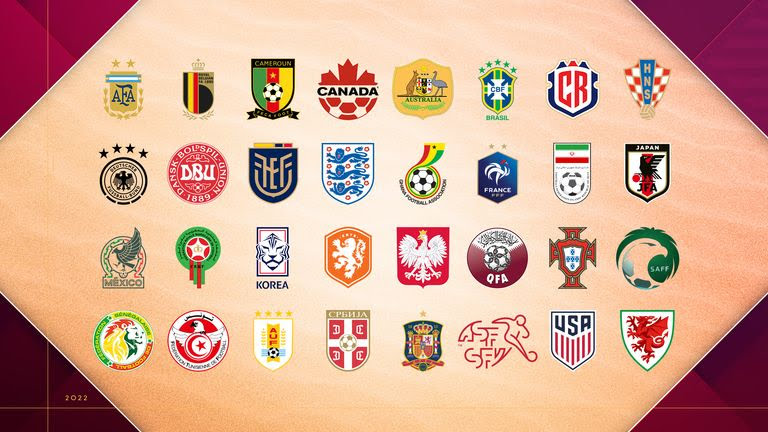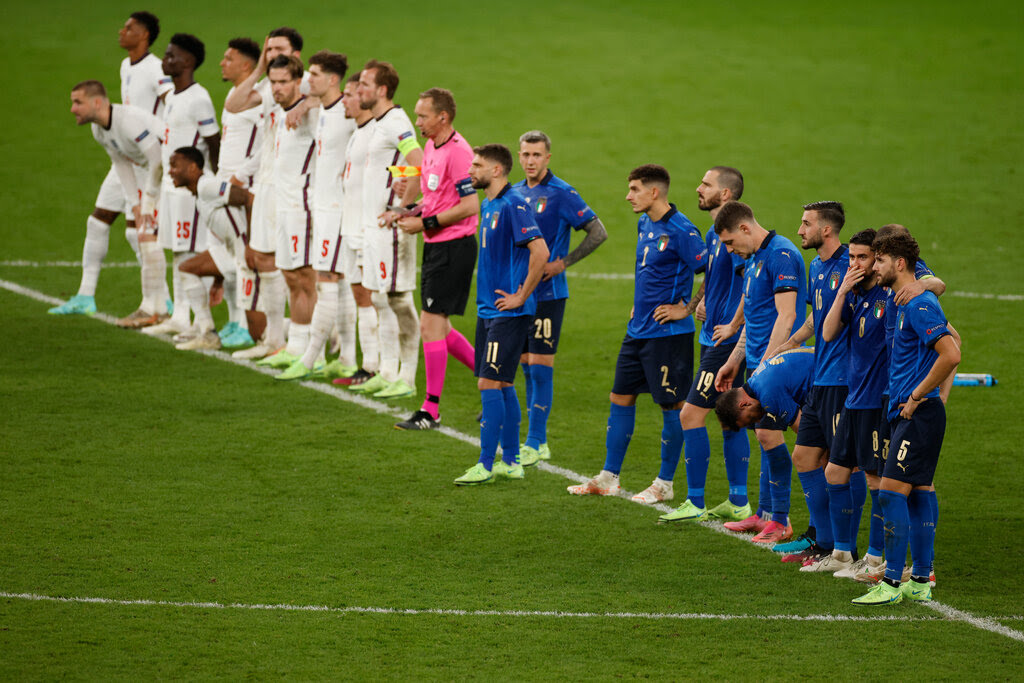World Cup is fast approaching. Kickoff in the opening match takes place on November 20, almost 12 years since the day Qatar was awarded hosting rights for the tournament.
The event will feature 32 teams and attract more than 1.2 million visitors to Qatar, which will become the first country in the Middle East to host football’s biggest tournament.
Here is a list of some other firsts at this year’s World Cup:
Offside technology
In July, football’s world governing body, FIFA, announced the use of a semi-automated offside system at the World Cup to help make fast and accurate offside calls.
According to the governing body’s rules, a player is in an offside position if “any part of the head, body or feet is in the opponents’ half (excluding the halfway line) and any part of the head, body or feet is nearer to the opponents’ goal line than both the ball and the second-last opponent”.
The technology uses a sensor in the ball and a limb-tracking camera system to follow the movements of players. To help fans and viewers at home understand the referee’s decision, the data will be used to project 3D images on stadium screens.
Substitutions
Teams will be allowed five substitutions in each game as opposed to three from the previous World Cup in Russia in 2018.
The regulation was introduced by football’s rule-setting body, the International Football Association Board, in 2020 after what it said was “a global analysis of the ongoing impact of COVID-19 on football as well as representations from several key stakeholders from across the football community”.
If a World Cup game goes into extra time, one additional substitution will be allowed.
Several football leagues, including Spain’s La Liga and Major League Soccer in the United States, have implemented the change over the past two years.
November kickoff
Unlike previous tournaments, Qatar 2022 will be taking place during the months of November and December.
Previously, the World Cup had always been held during the Northern Hemisphere’s summer, often in June and July. The change was made to avoid high temperatures in Qatar, which can reach up to 50C (122F) during that period.
During the tournament, temperatures are predicted to range from 14C to 31C (57F to 88F).
Expanded squad lists
In November, participating countries will name squads containing a maximum of 26 players, three more than what was allowed at the World Cup in Russia.
According to FIFA, the change was made due to the “unique timing” of the tournament being held in November and disruptions caused by the COVID-19 pandemic.
The World Cup preliminary squad list was also expanded from a maximum 35 players to 55.
Female referees
For the first time at the men’s World Cup, three women have been included among the 36 referees selected for Qatar 2022.
France’s Stephanie Frappart, Japan’s Yoshimi Yamashita and Rwanda’s Salima Mukansanga have all previously officiated at a men’s tournament, including the UEFA Super Cup and the Africa Cup of Nations.
“It’s a strong sign from FIFA and the authorities to have women referees in that country,” Frappart said. “I’m not a feminist spokesperson, but if this can make things happen …”
Joining them will be three other women who will serve among the 69 assistant referees.
Most ‘compact’ World Cup
With an area of little more than 11,500sq km (4,440sq miles) and a population of around 2.9 million, Qatar will be the smallest country ever to host FIFA’s flagship tournament.
All eight stadiums are located within a 50km (31-mile) radius of the capital, Doha. During the group stages, most days will feature up to four games.
While Qatar and FIFA say the “compact” nature of the tournament will allow people to watch multiple matches a day, critics argue that an influx of more than 1.2 million people could lead to major congestion on the streets, making it more difficult for people to move around the country.
“Having four matches in a day is a challenge in a city like Doha,” Abdulaziz Ali Al-Mawlawi of the Supreme Committee for Delivery and Legacy, organiser of the tournament, said last month. “… Of course, we are expecting to have congestion on the streets.”
Schools in Qatar will remain closed during the World Cup while office working hours have been reduced.









